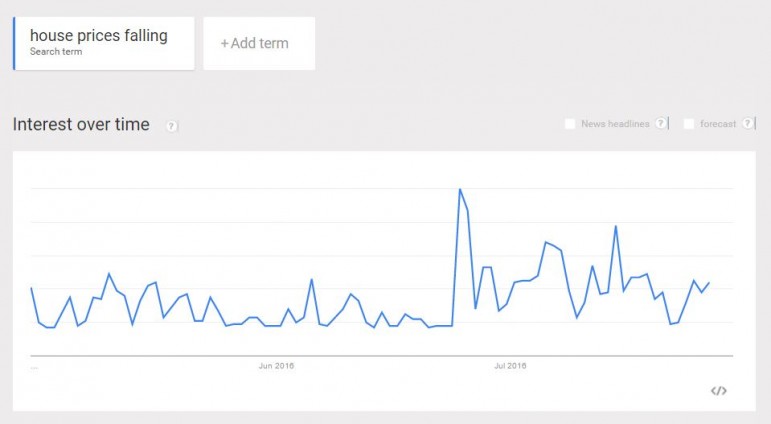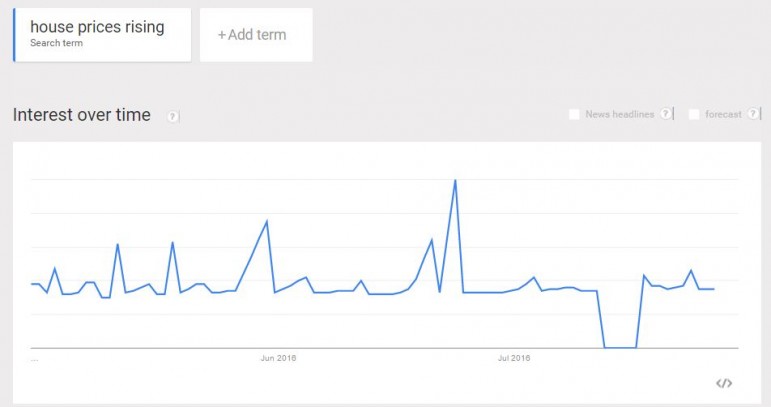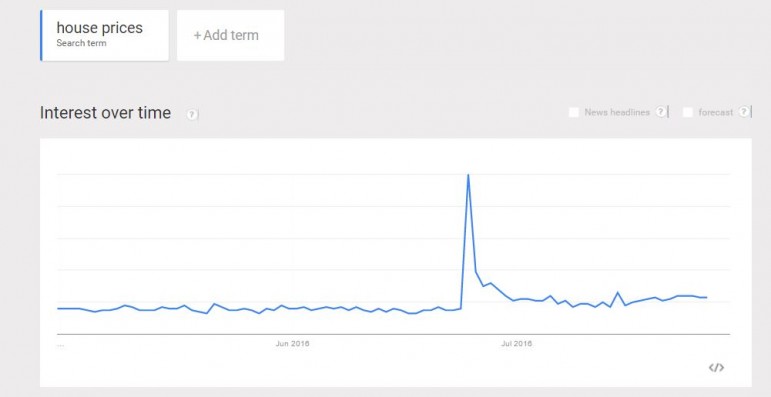Data is starting to emerge of the post-Brexit vote property market.
The picture has been mixed with RICS reporting that new buyer inquiries in the run-up to and aftermath of the EU referendum fell to their lowest reading since mid-2008, but Rightmove says listings on the portal have held steady.
Meanwhile Nationwide’s July house price index showed values continue to rise, while big agents such as Countrywide have said it is too early to spot a trend in prices and transactions.
One useful way to survey the public mood for property is to analyse where they are looking for their information, which is often the internet.
EYE has analysed Google Trends data based on search terms in the UK over the past month in the aftermath of the vote to leave.
Google Trends looks at a sample of search terms and creates a score from 1 to 100 of how highly searched a query is relative to the average over a set period. The lines in the graphs are more interesting than the numbers as they show whether relative popularity is rising or falling.
We have looked at the relative popularity of search terms ‘house prices falling,’ ‘house prices rising’ and ‘house prices’ over the past 30 days, to get an idea of the mood among potential buyers and sellers.
It makes interesting reading and gives an insight into what buyers and sellers may be thinking.
Searches for house prices peaked relative to all searches for the term over the past month on June 24, the day after the EU vote, but has since levelled off.
The proportion of searches in the UK for house prices falling also peaked the day after the referendum, but there does seem to have been more interest, with the relative figure reaching 63 earlier this month.
There seems to have been more interest than usual in whether house prices were rising ahead of the referendum, but over the past 30 days inquiries have been pretty flat, other than a boost on July 8.
So it appears that there may be more concern over house prices falling than rising among those trawling the internet.
Of course this is just one search term and one search engine, and people could get their information from a variety of sources.
It is a useful indication of public mood and perhaps suggests that estate agents need to persuade the public to stop believing everything they read online and to talk to an expert.





Comments are closed.